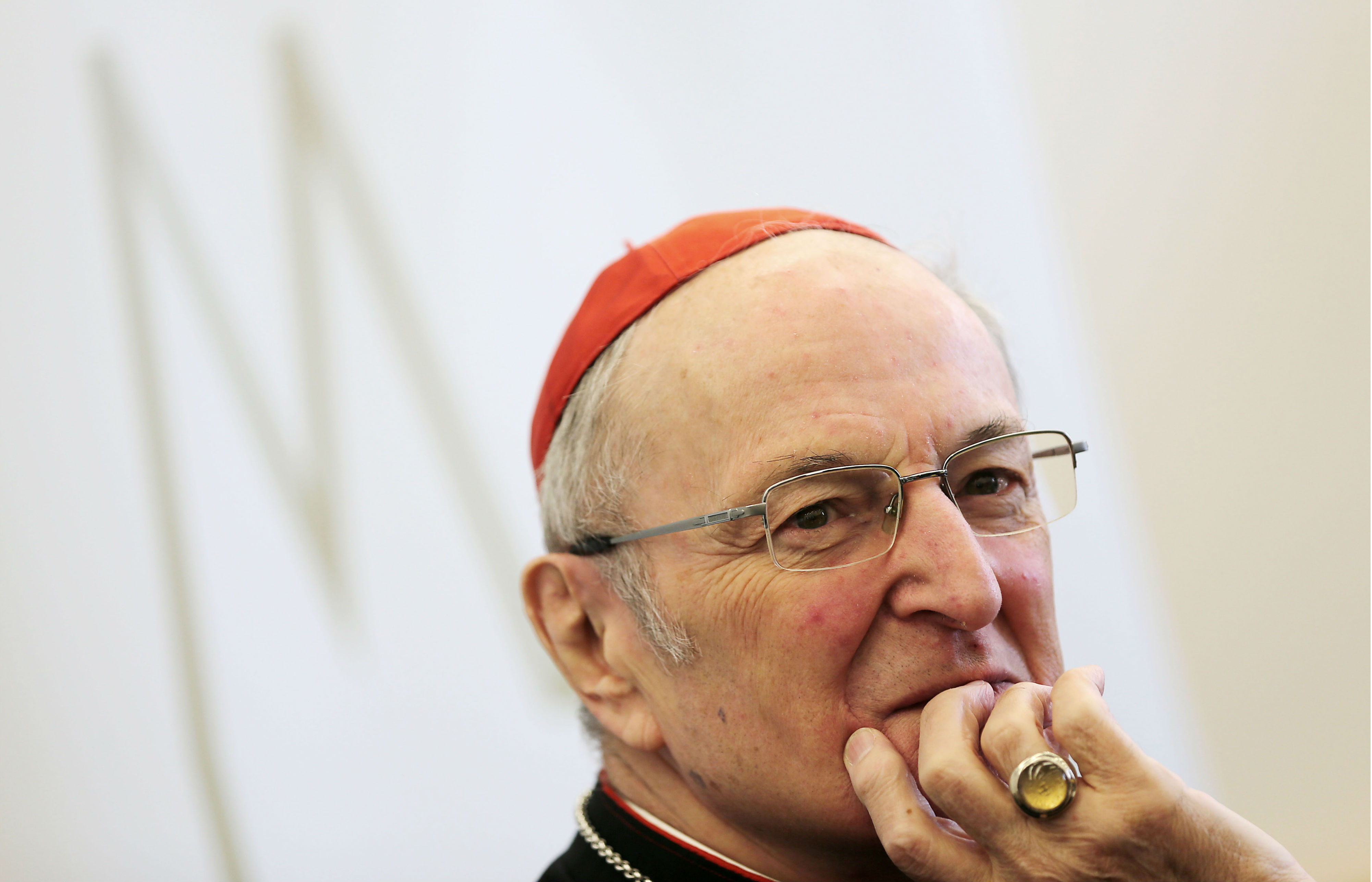The former archbishop of Cologne, Joachim Meisner, has died at the age of 83. He was widely regarded as Germany's leading conservative Catholic.
Cardinal Meisner died peacefully in his sleep on Wednesday, 5 July, while on holiday in the southern German town of Bad Füssing, a spokesman for the Cologne archdiocese said.
In a telegram sent to Cardinal Rainer Woelki of Cologne, Pope Francis expressed his condolences and sadness for the "dearly departed pastor," who was "called from this earth by the God of mercy." He praised Meisner's "deep faith and sincere love for the church."
The cardinal was committed to proclaiming the Gospel, the pope said, and he prayed God would reward him for his "faithful and fearless dedication to the well-being of the people of the East and West," referring to the cardinal's delicate service as bishop of a divided Berlin.
Born in 1933 in the Polish city of Wroclaw, formerly Breslau, Meisner served as Bishop of Berlin from 1980 to 1988, being given his red hat by St John Paul II in 1983. He was installed as Archbishop of Cologne in February 1989, nine months before the fall of the Berlin Wall. He held th e post for 25 years, until his retirement in 2014.
Meisner was considered to be one of the most influential figures from the conservative wing of Germany's Catholic Church. He had a close personal relationship with former Pope John Paul II and his successor Benedict XVI, but in recent years had been critical of the reforms implemented by Pope Francis.
The cardinal was one of four – along with Cardinals Carlo Caffarra, Walter Brandmüller and Raymond Leo Burke – who presented the ‘dubia’ to Pope Francis asking him to clear up controversies surrounding Amoris Laetitia. Last month, it was revealed the four cardinals had subsequently sought an audience with the Pope after he failed to answer their questions, but again did not receive a response
Holding strict views against introducing women into the priesthood and the abolition of celibacy, he once referred to himself as "a resistance fighter for God". Ever wary of Nazi ideology potentially recurring in contemporary form, he claimed prominent atheist Richard Dawkins saw people merely as "containers for the all-important genes," rather like Nazis saw them as carriers of a race's genetic qualities. He likened the medication Mifepristone (or RU-486), a first-trimester abortion pill, to the Zyklon B gas used in gas chambers during the Holocaust.
Comparing abortion to the Holocaust, he said in a 2005 sermon: "First there was Herod, who killed the children of Bethlehem, then Hitler and Stalin who exterminated millions of people, and today, in our time, unborn children are being killed in their millions."
According to Meisner, a German constitutional court ruling of 1985, banning crucifixes and other religious symbols from non-religious state schools was a throwback to Hitler's policies.
PICTURE: Archbishop emeritus Cardinal Joachim Meisner pictured at a press conference about his farewell ceremony in Cologne, Germany on 7 March 2014



 Loading ...
Loading ...